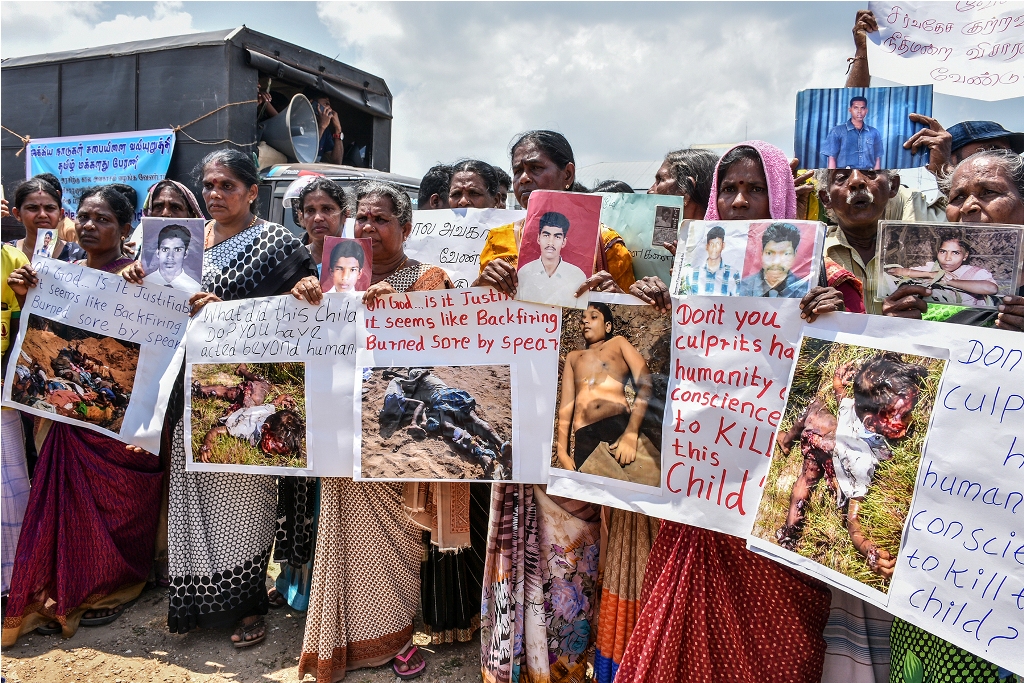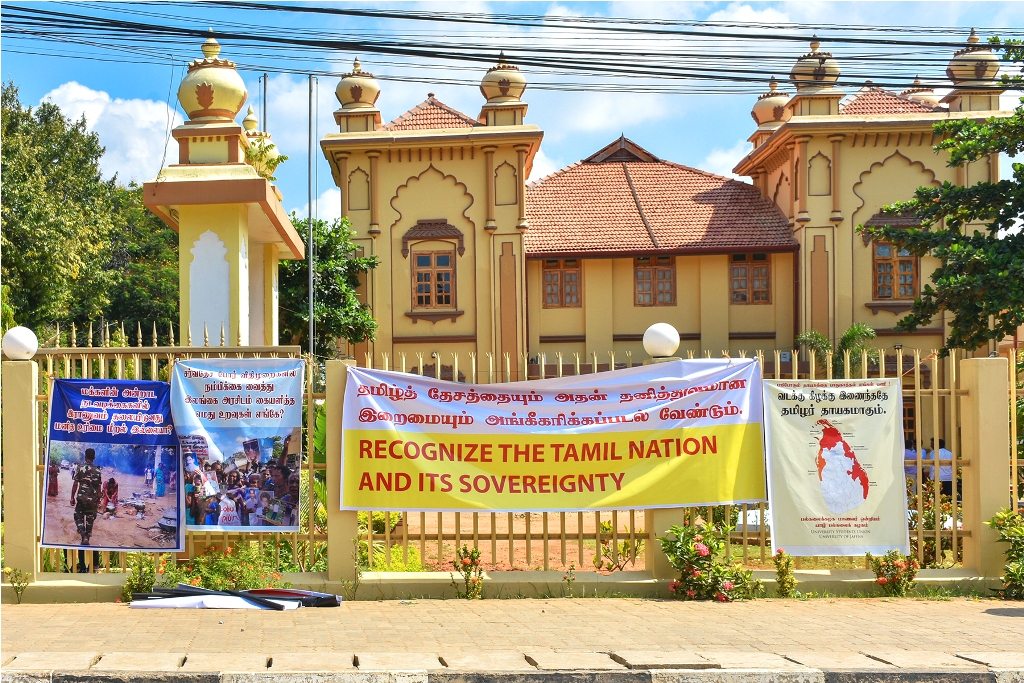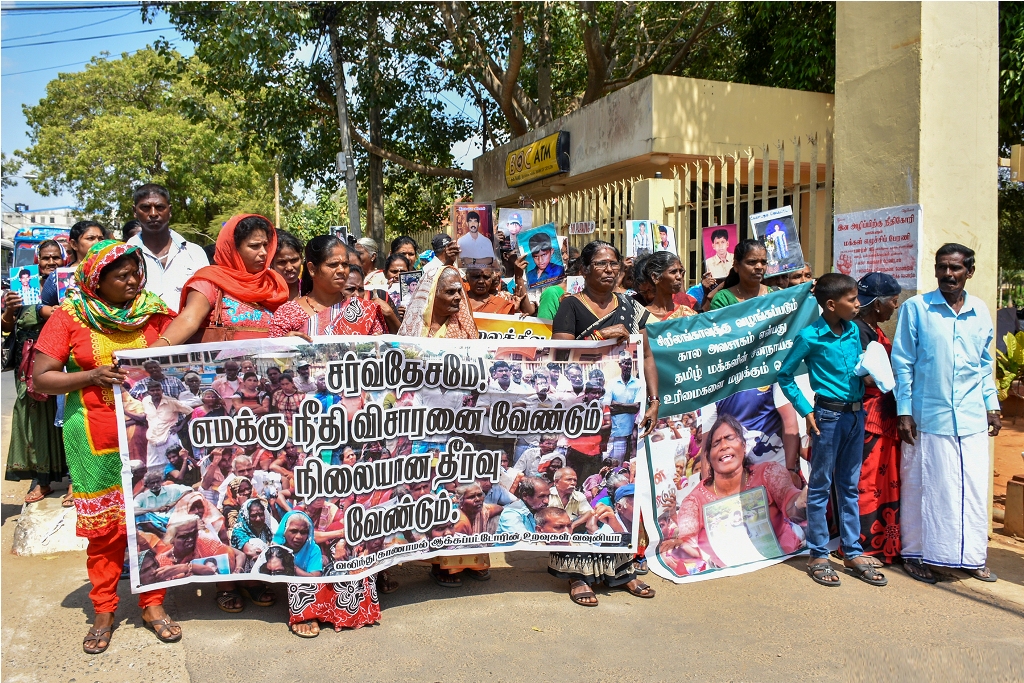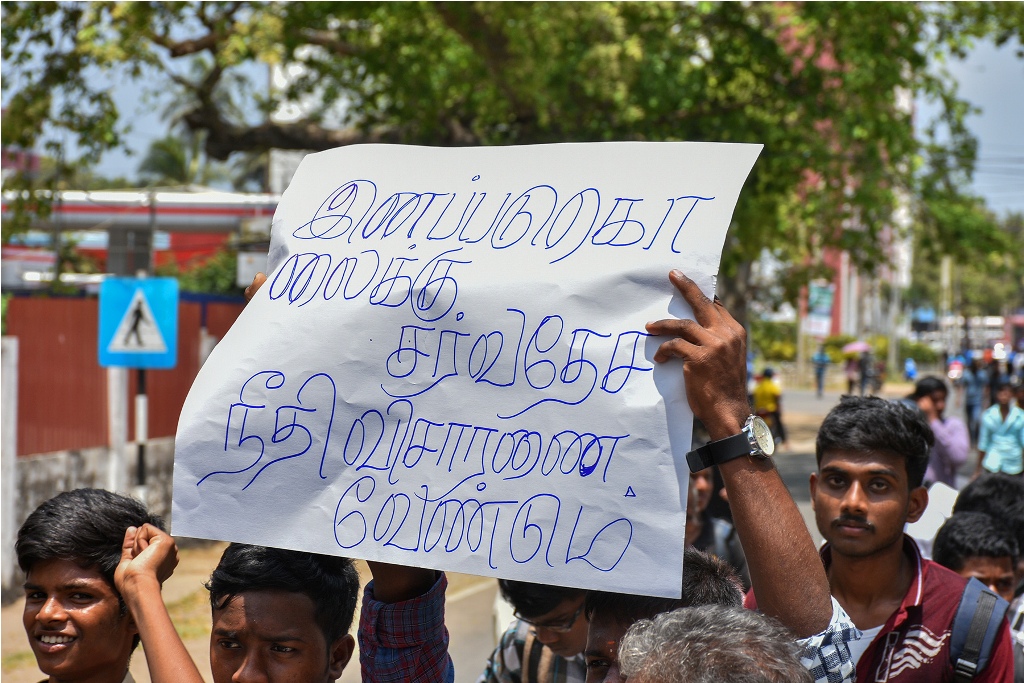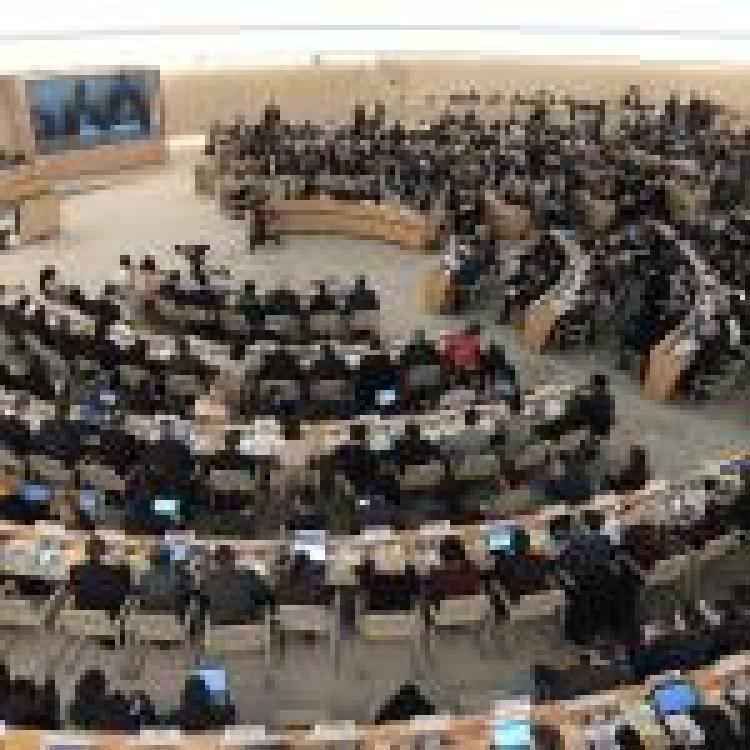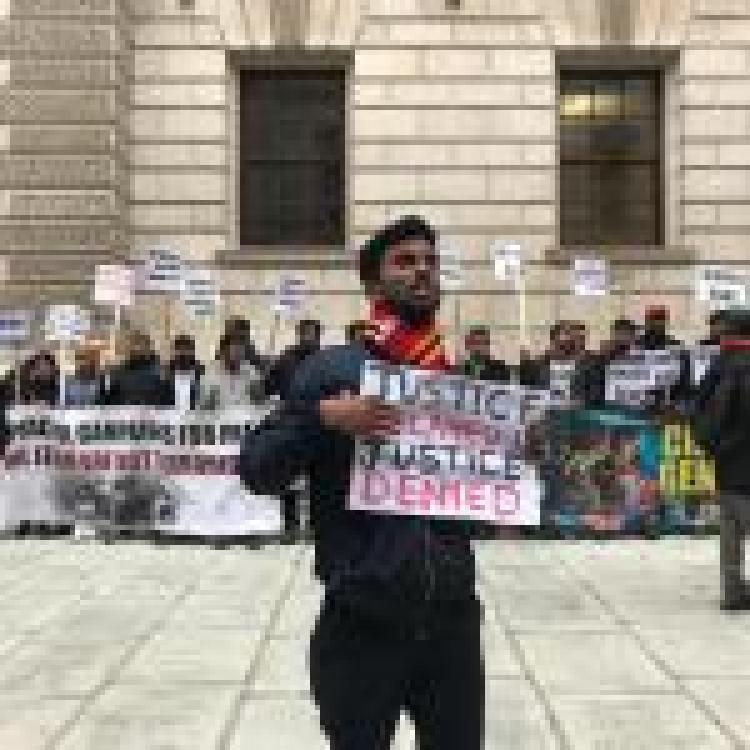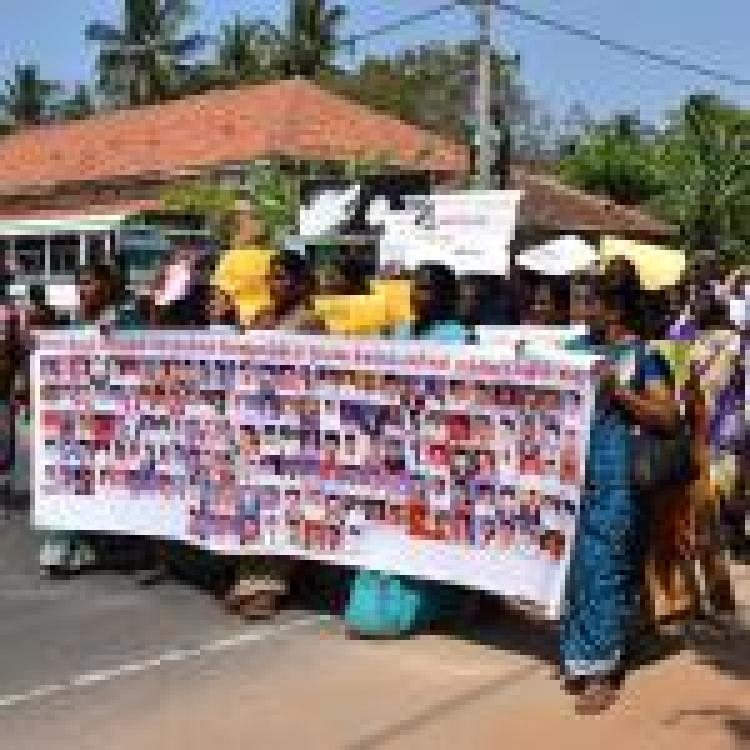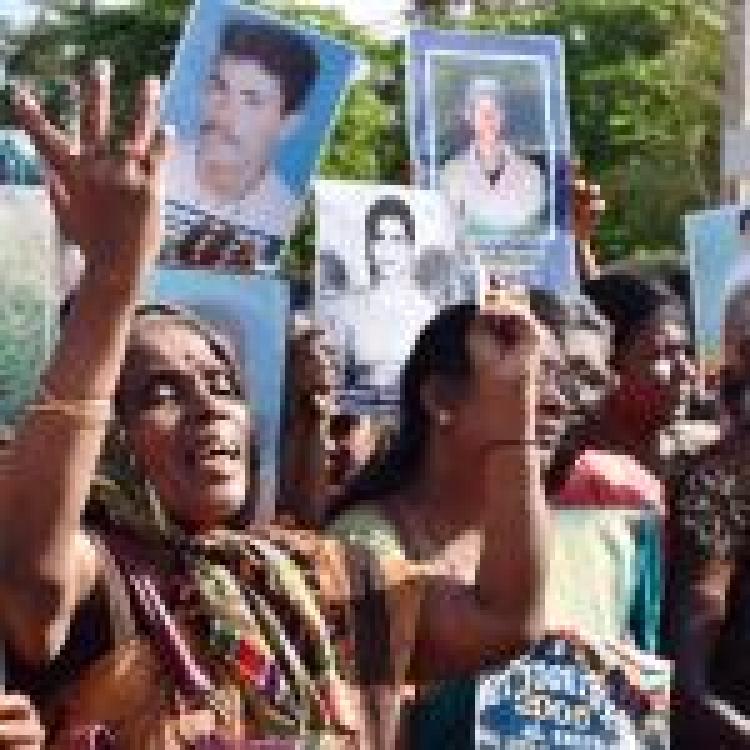Students at the University of Jaffna joined families of the disappeared last Saturday to demand Sri Lanka be referred to the International Criminal Court for committing a genocide against the Tamil people.
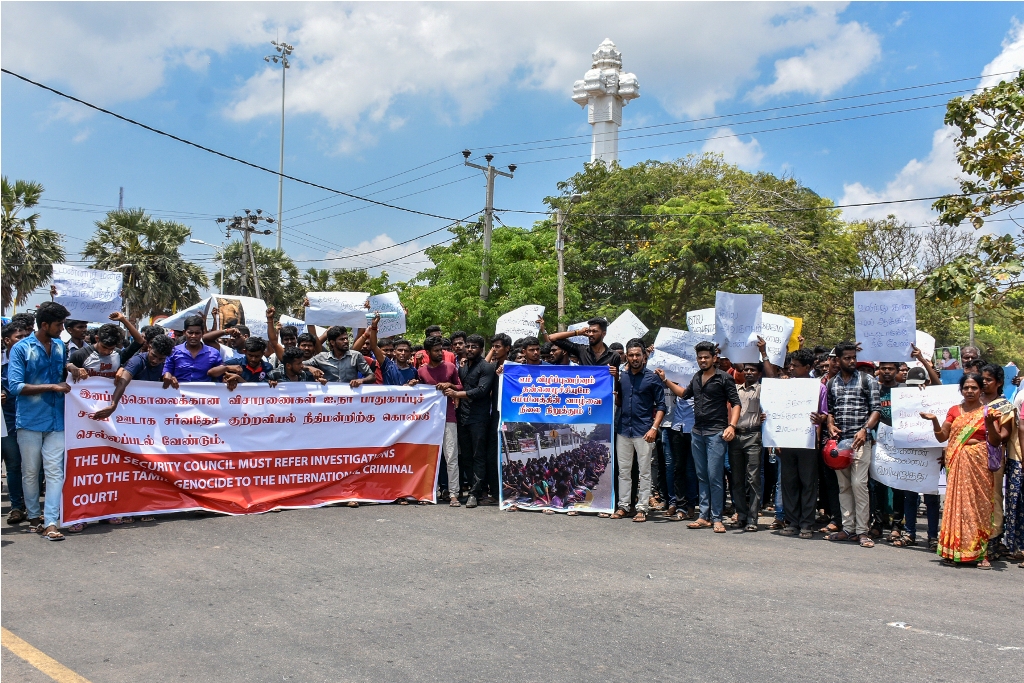
Students condemned the UN Human Rights Council's decision to grant an extension to the government to implement the co-sponsored resolution.
The protest began in front of the university and ended at the municipality council sports grounds.
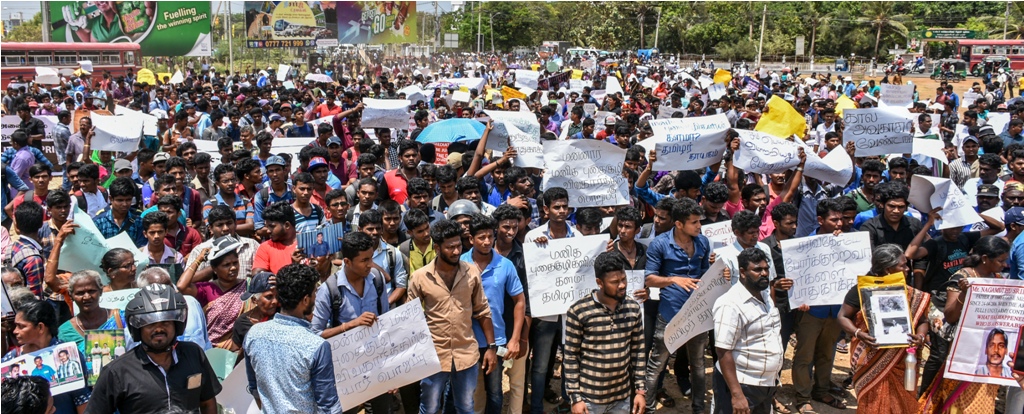
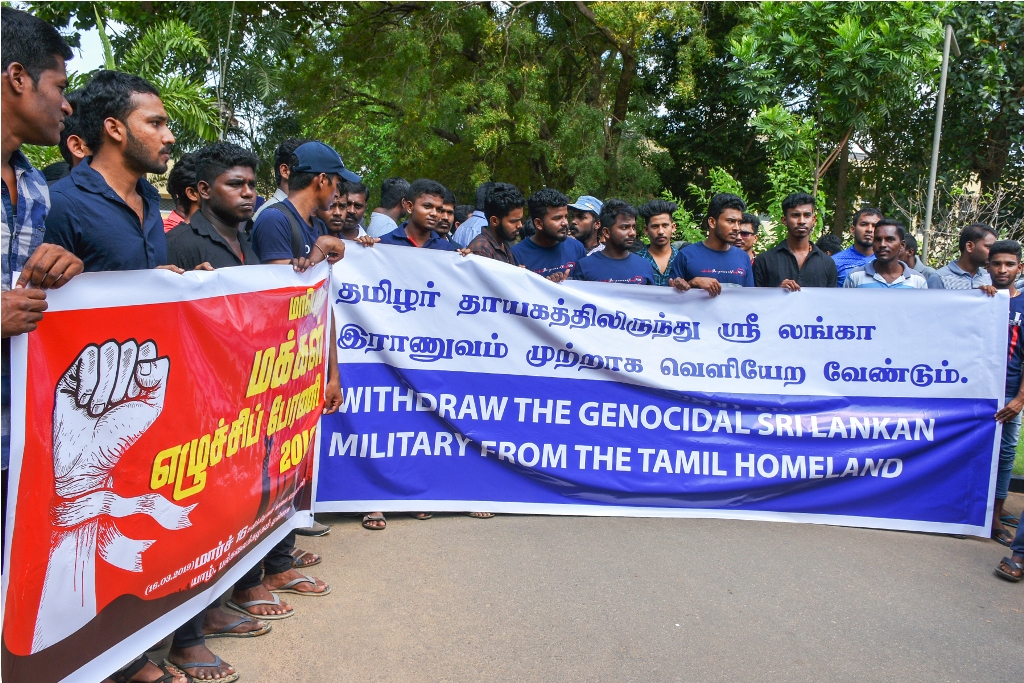
The protest comes amid a series of demonstrations and rallies across the North-East calling for accountability and justice.
Earlier this month, the Jaffna District Inter Religious Council called for the opening of an OHRHC office in Jaffna and the swift implementation of the resolution.
Read full letter here.
The former chief justice, C V Wigneswaran joined TELO leader, Selvam Adaikkalanathan, EPRLF leader, Suresh Premachandran, Eelam Tamil Sua-Adchi Kazhagam leader Ananthy Sasitharan, PLOTE leader Dharmalingam Siddharthan, and TULF leader V Anandasangaree, in calling on the UNHRC "to refer Sri Lanka to the UN General Assembly and to the UN Security Council to be referred to the International Criminal Court or to a specially created international criminal tribunal set up by the UN."
In a joint letter to the UN High Commissioner for Human Rights, Michelle Bachelet, the political party leaders stressed "Sri Lanka has not only failed to fully implement the UNHRC Resolutions 30/1 and 34/1, but also stated their unwillingness to implement the Resolutions, we urge not to give any extension of time to Sri Lanka."
"We call upon the UNHRC to appoint a UN Special Rapporteur for Sri Lanka, to monitor and report to the Council every six months, the plight of the war affected Tamil people, disappeared persons, political prisoners, continued arbitrary detention under the Prevention of Terrorism Act, presence of large number of Sri Lankan security forces in Tamil region, the occupation of private lands by the Sri Lankan security forces, and particularly the continuing Genocide of the Tamil people by the Sri Lankan state," the group added.
